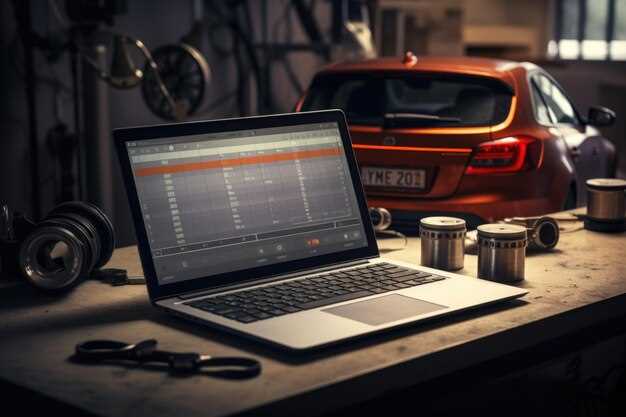
Estimating the value of a classic car can often feel like a daunting task. With numerous factors influencing car appraisal, from condition and mileage to market demand and rarity, it’s essential to leverage the right tools for an accurate assessment. Fortunately, the digital age provides us with various online platforms designed specifically for this purpose.
These online appraisal tools have become indispensable for classic car enthusiasts and collectors alike. They can simplify the complex process of determining a vehicle’s worth by gathering real-time data from sales, auctions, and listings. Utilizing these resources can lead to more informed buying and selling decisions, ensuring that you receive a fair value for your prized automobile.
In this article, we will explore the top-rated online tools available for classic car value estimation. By examining their features, functionalities, and user experiences, we aim to equip you with the knowledge needed to navigate the classic car market more effectively. Whether you are a buyer, seller, or just an enthusiast, understanding these tools will enhance your ability to appraise classic vehicles accurately.
Finding the Right Digital Appraisal Platform for Classic Cars

When it comes to determining the value of classic cars, selecting the right digital appraisal platform is crucial. With an abundance of online tools available, car enthusiasts must consider various factors to ensure accurate assessments. The ideal appraisal platform should provide comprehensive data, including market trends, historical sales, and condition-based valuations.
One significant aspect of these tools is their user interface. A well-designed platform should be intuitive, enabling users to navigate through features without difficulty. Look for services that offer detailed guidance or tutorials on how to effectively use their appraisal tools for classic cars.
Another essential element is the reliability of the information provided. Reputable appraisal platforms often utilize extensive databases, including auction results and expert reviews, ensuring that the valuation reflects current market conditions. Cross-referencing data from multiple sources can also enhance the accuracy of the appraisal.
In addition, consider platforms that offer customization options. The ability to input specific details about a classic car, such as make, model, year, mileage, and any unique features, can yield a more precise valuation. Some tools even allow users to upload photographs or documentation related to the car’s history, further assisting in the appraisal process.
Lastly, evaluate the cost and accessibility of the platform. While many digital appraisal tools are free, some may charge fees for detailed reports or premium features. Establishing a budget can help narrow down choices, ensuring you find a tool that offers value for your investment.
In conclusion, a solid digital appraisal platform for classic cars should blend usability, reliability, customization, and reasonable costs. By thoroughly assessing these factors, you can confidently choose an online tool that meets your classic car valuation needs.
Comparing Features of Leading Online Value Estimation Tools

When it comes to appraising classic cars, online value estimation tools have become essential for enthusiasts and collectors alike. These tools offer various features that cater to the diverse needs of users. Understanding the differences among these tools can help potential buyers or sellers gain accurate insights into a vehicle’s worth.
One prominent tool is the Classic Car Market Report, which provides a comprehensive appraisal based on real-time market data. This tool aggregates sales figures and trends, ensuring users receive up-to-date valuation estimates. It also allows comparisons between similar models, which helps users understand how specific features can influence value.
Another popular platform is Hagerty Price Guide. Hagerty offers a robust database with detailed historical sales records. This tool provides a unique feature: users can view projected value trends over multiple years. It is particularly useful for those looking to make long-term investments in classic cars.
Classic.com stands out with its user-friendly interface and powerful search capabilities. It enables users to filter results based on various criteria, such as make, model, year, and condition. Additionally, this tool provides visual charts that depict value fluctuations, making it easier to interpret data at a glance.
In contrast, Kelley Blue Book’s classic car section provides a straightforward appraisal solution. While it may not be as specialized as other tools, it offers valuable insights and is accessible to a broader audience. The tool simplifies the valuation process and is backed by Kelley Blue Book’s long-standing reputation in the automotive industry.
Lastly, NADA Guides offers a unique advantage by including a pricing tool specifically for classic vehicles. Its feature-rich platform incorporates factors like mileage and condition to generate accurate appraisals. NADA Guides also provides resources on market trends, making it easier for users to stay informed about the classic car market.
In summary, each of these online tools for classic car value estimation possesses distinct features that cater to different user needs. From real-time market data to historical sales insights, car enthusiasts can choose the platform that best fits their appraisal requirements.
Tips for Accurately Assessing Your Classic Car’s Worth Online
Determining the value of your classic car can be a challenging task. However, utilizing the right digital tools and approaches can significantly enhance your assessment process. Here are some tips to help you accurately gauge your vehicle’s worth:
-
Research Market Trends:
Stay informed about current market trends for classic cars similar to yours. Check various online platforms, including auction sites and car sale advertisements, to understand the prevailing prices.
-
Use Multiple Tools:
Don’t rely on a single online calculator. Use several valuation tools to compare results:
- Kelley Blue Book – A trusted resource for automotive values.
- Classic Car Price Guide – Provides specific insights tailored to classic vehicles.
- NADA Guides – Offers price assessments based on condition and market data.
-
Assess Condition Thoroughly:
Accurately determine the condition of your classic car. Consider factors such as wear and tear, maintenance history, and any restorations. Take detailed photos and note any unique features that could enhance value.
-
Consult Online Communities:
Engage with online forums and social media groups dedicated to classic cars. Users often share insights about market values and can provide advice based on their experiences.
-
Compare Similar Models:
Look for cars that are identical or similar to yours. Assess their selling prices to create a benchmark for your valuation. Pay attention to mileage, modifications, and historical significance, as these factors can influence value.
By following these tips and leveraging digital tools, you can arrive at a more accurate assessment of your classic car’s worth. Taking the time to thoroughly research and analyze will increase your chances of achieving a fair price, whether you are buying, selling, or simply gauging value.


